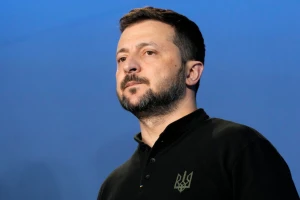
How Russia's fake stories target Americans: Bugatti, Ukraine's first lady, and disinformation campaign
A network of Russian-operated websites is using AI to spread fake news stories targeting the U.S. election, a BBC investigation reveals
BBC writes about it.
A recent false story claimed that Olena Zelenska, Ukraine's first lady, purchased a Bugatti sports car for €4.5 million, using American military aid. This story, published by an obscure French site, was quickly debunked. Bugatti denied it, calling it "fake news," and its Paris dealership threatened legal action.
However, the false story went viral, reaching millions on social media. Pro-Russia, pro-Trump activist Jackson Hinkle shared it, garnering over 6.5 million views. The story was part of a Russia-based disinformation operation, BBC Verify reported, now focusing on influencing American voters.
Investigating hundreds of articles on dozens of sites over six months, the BBC found the operation aimed at sowing distrust ahead of the U.S. elections. Bogus stories linked to this network have been shared by influencers and U.S. Congress members.
Earlier, a false claim on The Houston Post, another Russian-run site, alleged the FBI illegally wiretapped Donald Trump’s Florida resort. This played into Trump's claims of being unfairly targeted by the legal system.
Experts say this operation is part of a broader Russian effort to spread disinformation during the U.S. election. Chris Krebs, former director of the U.S. Cybersecurity and Infrastructure Security Agency, noted, "Russia will be involved in the US 2024 election, pushing against already contentious points in US politics."
The disinformation network uses AI to generate articles for sites with American-sounding names like Houston Post and DC Weekly. These sites mix real news with fake stories, attributed to fake journalists using photos taken from the internet.
John Mark Dougan, a former U.S. Marine and police officer, is implicated in this operation. After fleeing to Moscow in 2016, Dougan has been active in spreading disinformation. While he denies involvement, he has previously boasted about his role in spreading fake news, calling it "a game" and "payback" against American authorities.
The disinformation operation often creates YouTube videos with "whistleblowers" or "journalists" to lend credibility to fake stories. These videos are cited as sources in the fake articles, which are then amplified on social media.
Some fake stories have reached millions and influenced powerful people. For instance, a claim that Ukrainian officials bought yachts with U.S. aid was shared by members of Congress, including Senator J.D. Vance and Representative Marjorie Taylor Greene.
Despite no direct evidence linking these websites to the Russian state, the scale and sophistication of the operation mirror previous Kremlin-backed efforts to spread disinformation in the West.
The BBC contacted the Russian Foreign Ministry and Russia’s US and UK embassies, but received no response.
- News














































